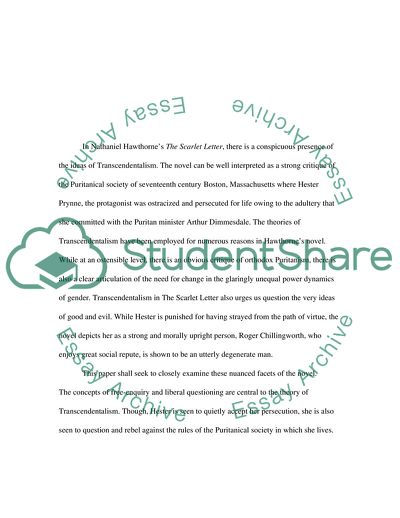Cite this document
(Nathaniel Hawthorne's Transcendentalism Report Example | Topics and Well Written Essays - 1250 words, n.d.)
Nathaniel Hawthorne's Transcendentalism Report Example | Topics and Well Written Essays - 1250 words. https://studentshare.org/english/1754314-nathaniel-hawthorne-transcendentalism
Nathaniel Hawthorne's Transcendentalism Report Example | Topics and Well Written Essays - 1250 words. https://studentshare.org/english/1754314-nathaniel-hawthorne-transcendentalism
(Nathaniel Hawthorne'S Transcendentalism Report Example | Topics and Well Written Essays - 1250 Words)
Nathaniel Hawthorne'S Transcendentalism Report Example | Topics and Well Written Essays - 1250 Words. https://studentshare.org/english/1754314-nathaniel-hawthorne-transcendentalism.
Nathaniel Hawthorne'S Transcendentalism Report Example | Topics and Well Written Essays - 1250 Words. https://studentshare.org/english/1754314-nathaniel-hawthorne-transcendentalism.
“Nathaniel Hawthorne'S Transcendentalism Report Example | Topics and Well Written Essays - 1250 Words”. https://studentshare.org/english/1754314-nathaniel-hawthorne-transcendentalism.


